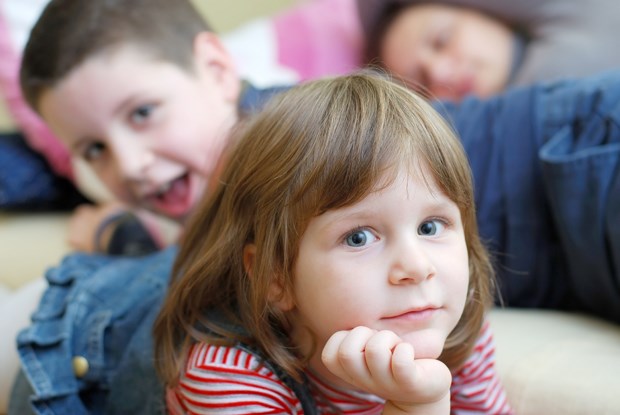Jaymie races out of the house to go to school. Then he dashes back in and grabs his school project which he had left sitting on the dining room table. “I’m so stupid” he said, “I forgot my project.”
“No,” his mother replied, “you remembered, and just in time.”
His mother could have launched into the lecture telling him that if he’d just put it by the door the way she suggested he would have remembered when he first left. She could have talked to him about the consequences at school if he had left his project at home.
But she didn’t. She helped him to see the situation in a positive way. She defined him as a child who remembers things.
Next time he will likely remember the first time because he now sees himself as a kid who remembers. And he knows that’s what his mom expects of him.
Kids will work hard to live up to and exceed our expectations. How we label them lets them know what we expect.
When our expectations give positive messages they help our kids develop a good sense of self-confidence. Mom says I’m responsible, or dad says I’m helpful.
Nicknames often work against our kids. Names such as Shorty, Clumsy, Klutz or Crybaby can become daily reminders of incompetence. And in the same way that kids work to live up to our expectations they can live down to them as well and become the klutz or crybaby they believe they are supposed to be.
Avoid using negative labels about your child. Saying in front of him that he is shy, stubborn or silly will set him up to be exactly what he hears. Our kids think we know everything so however we describe them, they will follow along and nurture the labels we place on them.
We also want to make sure that others don’t label them. You are shopping and you meet your friend Doris. Three-year-old Olive ducks behind your legs when you go up to speak to her. Doris notices that Olive certainly is shy. You can turn it around by saying, “No, she just likes to watch what’s happening when I meet one of my friends.”
Avoid making comparisons particularly among siblings. “My son’s good in math and his sister’s a superb speller.” These sound positive, and they are, but the kids tend to hear what they’re not, so your daughter will avoid math believing that she’s not going to be able to do well.
Comparing your kids to motivate them is another way we can set up negative expectations. “Why can’t you keep your room neat like your sister does?” “Why don’t you eat all your dinner like your brother does?”
Describing our kids in relation to their relatives can also backfire. “I just hated chemistry when I was in school and it looks like you’re just the same.” On the other hand, you can add positive labels by comparing kids to family members. This can sometimes be a great role for grandparents to play.
They can tell their grandchildren stories about their parents in a positive and uplifting way. Soon the kids are seeing the possibilities in life and feeling extremely well about themselves.
It can be challenging when a child’s behaviour is hard to describe in a way that builds confidence and a forward motion. The trick is to simply change the labels.
So a hyperactive kid becomes energetic, a shy one cautious. An unpredictable kid is flexible, a daydreamer is creative and an aggressive kid is assertive.
Then we look for ways to help our child move forward. Take the daydreamer. If you see her as creative you will then help her learn all kinds of ways to channel her energy. Does she want to take a drama course, study pottery or write stories?
We can easily make a difference in how our kids see themselves. When they see themselves in a positive light they will develop the self-confidence they need to become successful and happy young men and women.
Kathy Lynn is a professional speaker and author of Vive la Différence, Who’s In Charge Anyway? and But Nobody Told Me I’d Ever Have to Leave Home. If you want to read more, sign up for her informational newsletter at parentingtoday.ca.



